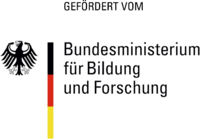Bayreuth Academy of Advanced African Studies
/
Persons
/
Our Guests
Guests of the Bayreuth Academy in the last five years
Our Guests
Miss/es Dr. Rachel Spronk
| Inviting institution: | Bayreuth Academy of Advanced African Studies |
|---|---|
| Stay: | 28. Juni 2016 - 03. Juli 2016 |
| Email: | R.Spronk@uva.nl |
| Home university: | Universiteit van Amsterdam (Niederlande) |
| Personal information: | Rachel Spronk is associate professor at the anthropology department of the University of Amsterdam. She is trained as an anthropologist and doing interdisciplinary research on culture, gender and sexuality. Her research focuses primarily on the intersection of three scholarly fields - anthropology, gender and sexuality studies, and African studies. Her various research projects evidence a concern with the historical trajectories that have shaped the present, the production of knowledge about gender and sexuality and, ultimately, how the lived experiences of people inform our theoretical models. Overall, she investigates the interface between sexuality and the middle class in Ghana and Kenya, examining problematic assumptions behind both terms. One of her research projects deals with the ethnographic study of the love and sexual relationships of young urban professionals in Nairobi, Kenya, since 1997. She will follow up with the cohort that formed her 2001/2 study every five years, which will result in a longitudinal study of the formation of the middle class in Kenya, of growing into adulthood in the 21st century and of the role of gender and sexuality herein. In her second project she focuses on shifts in the practices and imagination of intimacy and how these relate to the notion of modern personhood, from an intergenerational perspective, for which she studies family histories in Ghana since 2011. She has been awarded with a NWO VENI grant for the research project “Transformations in intimacy. Sexuality and modern personhood among middle-class Ghanaians from 1940 to the present”. The third project is entitled "Sexuality and the making of the middle class. A comparative study of desire and status in three African countries", for which Spronk has been awarded with a NWO VIDI grant. This project will investigate the interface between sexuality and the middle class. A four-generation historical perspective will be used to provide a vantage point from which to analyse changing notions of sexuality and of class distinction. Four contentious questions stand central: homosexuality, bride-wealth, female circumcision and polygyny – issues that are often conceptualised as traditional and therefore assumed to be stable. Groups that aspire middle class status play a salient role in the debates about these issues, as ideas and practices of distinction are typically articulated via gender and sexuality. The study will examine the continuum between same-sex and opposite-sex desires, practices and experiences. It will further theorise the middle class as a desirable position and thus as a classification in the making, emerging from (shifting) ideas of distinction. The topic is investigated from a comparative perspective, in three countries: Ghana, Kenya and Senegal. A comparison of these three countries is challenging because of similarities and differences in economic profile, colonial legacy and cultural-religious contours. The innovative aspect is that the synthesis provides a productive ground for theorising sexuality and the middle class from the South: this project aims to re-locate discussions on modernity using the terms ‘South’ and ‘North’ to denote a set of relations rather than geographical locations by incorporating the North as one of many sites and cultures in a world of plurality. Other research projects focus on the Netherlands: In 2012 the FWOS grant was awarded for the study titled “Sexualities and diversities in the making, among young adolescents in the Netherlands”. Rather than taking up a priori categories of diversity (such as race / ethnic groups) and sexuality (such as homo- and/or heterosexuality), the aim is to follow young people's cultural and sexual practices in order to flesh out the lived realities of identities in the making. The focus is on two kind of spaces that are crucial in adolescents' lives: online worlds, i.e. social media, as well as offline worlds, in this case the school grounds. This project is a cooperation between the University of Nijmegen and the University of Amsterdam. In 2015 the NWO Open Competitie grant was awarded for the study titled “Sexuality, religion and secularism. Cultural encounters in the African Diaspora in the Netherlands”. In the Netherlands, as in Europe generally, debates on migration often problematize the role of religion and ‘tradition’, particularly in relation to gender and sexuality. Religion and tradition are seen as sources of taboos and unsafe practices. This study investigates the ways religion and secularity are (re)shaped through cultural encounters between the African Diaspora and Dutch health institution in post-colonial Europe. This project is a cooperation between the University of Groningen and the University of Amsterdam. A last project is a collaboration with (art) film maker Paul Gomes. In 2017 we will make a film about a former leprosy colony in northern Nigeria that is, almost literally, located at the edge of the world. The first cohort of cured adult patients were trained as hospital staff and over the decades the leprosy clinic has become a general hospital. Many of this first generation have passed away but not all; their life stories are fascinating and provide a window into a unique place. The following issues will be central: the contrast between their (sometimes very) mutilated faces, hands and feet, while they have thrived socially; the divergence from originally being outcasts to becoming respectable women and men; the disparity between this community that is inter-ethnically and inter-religiously organized in the context of increasing religious clashes and/ or ethnic conflicts; the commitment of the staff (who are civil servants in Nigeria) to continue to work for months and sometimes up to years without a salary. |
Zurück / back



